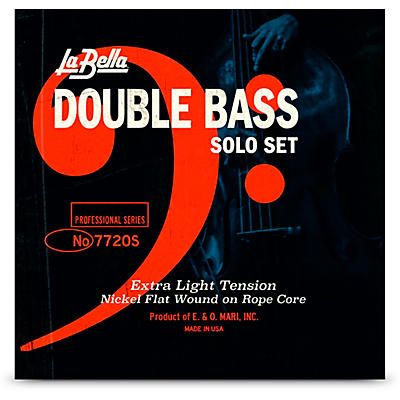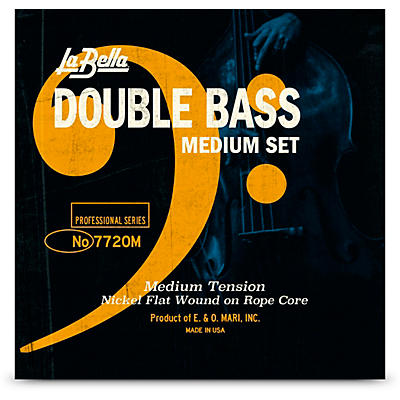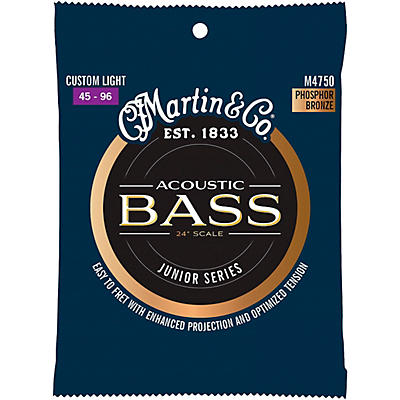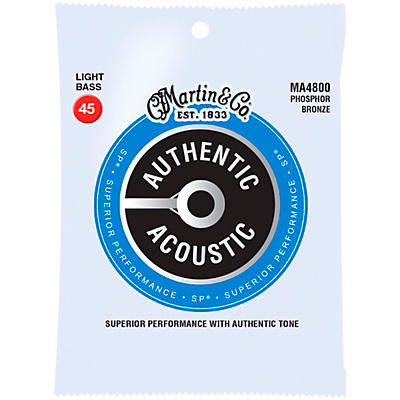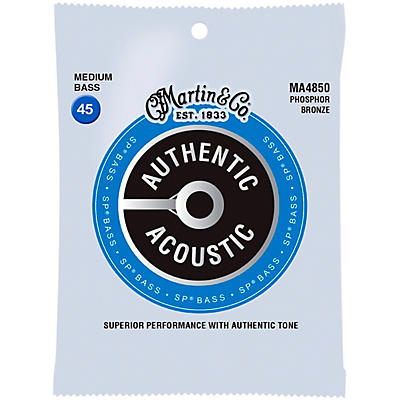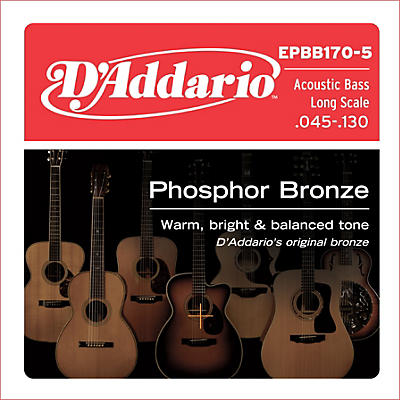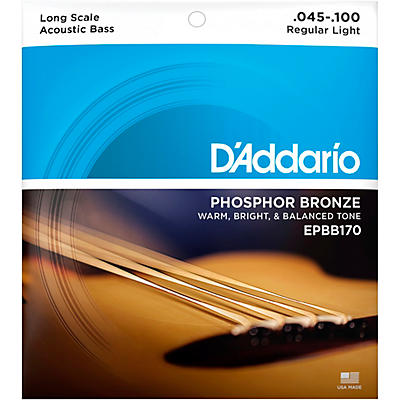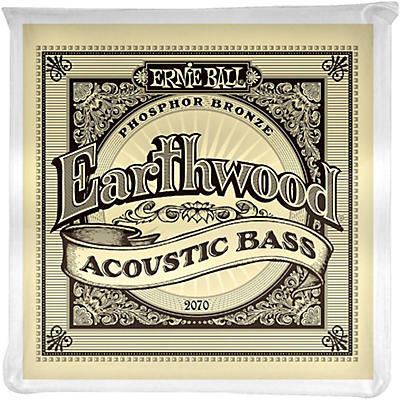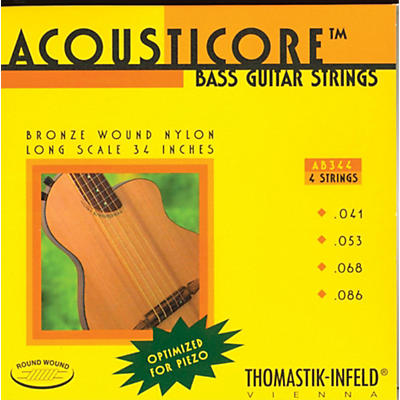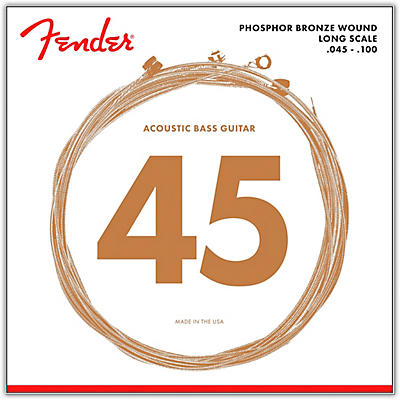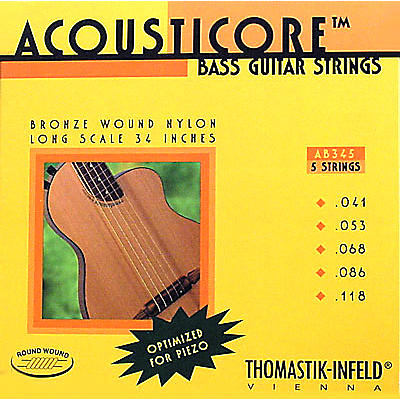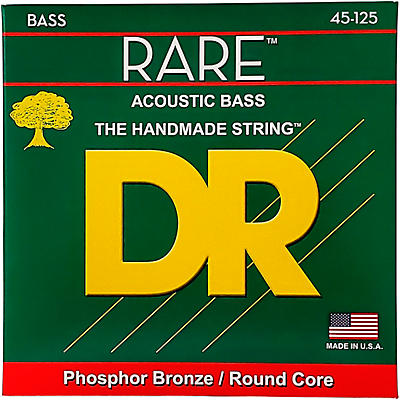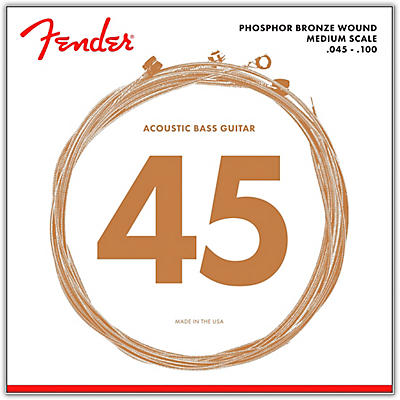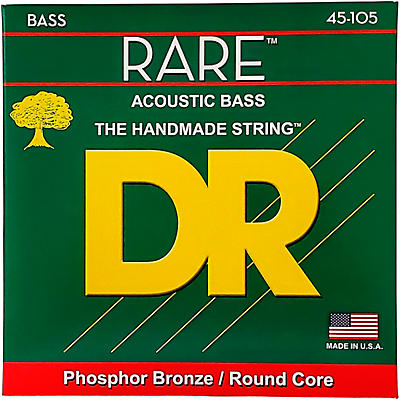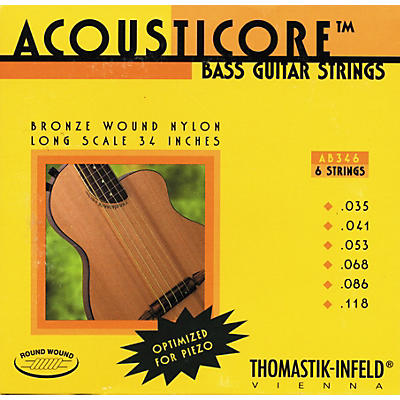Filters
Acoustic Bass Guitar Strings
(16 Items)
SkuInfo [skuId=site1skuM15544000001000, productId=site1prodM15544, linkUrl=/accessories/labella-double-bass-nickel-flat-wound-on-rope-core-solo-string-set, imageId=Double-Bass-Nickel-Flat-Wound-on-Rope-Core-Solo-String-Set-Extra-Light/M15544000001000, displayName=LaBella Double Bass Nickel Flat Wound on Rope Core Solo String Set, description=null, brandName=LaBella, totalReviews=null, overallRating=null, priceVisibility=1, graphicalSticker=null, allUsed=false, onsale=false, lowPrice=221.99, highPrice=221.99, startingRestockPrice=null, restockItemCount=0, startingUsedPrice=null, usedItemCount=0, restockLinkURL=null, maxSaving=null, maxSavingPercent=null, maxSavingMSRP=null, externalInfo={}, productSeoUrl=/accessories/labella-double-bass-nickel-flat-wound-on-rope-core-solo-string-set, productVisibilityMSRP =1, storeName=null, storeId=null]
LaBella Double Bass Nickel Flat Wound on Rope Core Solo...
Product Price
$221.99
SkuInfo [skuId=site1skuM04514000002000, productId=site1prodM04514, linkUrl=/accessories/la-bella-double-bass-nickel-flat-wound-on-rope-core-string-set, imageId=Double-Bass-Nickel-Flat-Wound-on-Rope-Core-String-Set-Medium/M04514000002000, displayName=LaBella Double Bass Nickel Flat Wound on Rope Core String Set, description=null, brandName=LaBella, totalReviews=null, overallRating=null, priceVisibility=1, graphicalSticker=null, allUsed=false, onsale=false, lowPrice=221.99, highPrice=221.99, startingRestockPrice=null, restockItemCount=0, startingUsedPrice=null, usedItemCount=0, restockLinkURL=null, maxSaving=null, maxSavingPercent=null, maxSavingMSRP=null, externalInfo={}, productSeoUrl=/accessories/la-bella-double-bass-nickel-flat-wound-on-rope-core-string-set, productVisibilityMSRP =1, storeName=null, storeId=null]
LaBella Double Bass Nickel Flat Wound on Rope Core String...
Product Price
$221.99
SkuInfo [skuId=site1skuM04462000002000, productId=site1prodM04462, linkUrl=/accessories/labella-golden-alloy-long-scale-acoustic-bass-strings, imageId=Golden-Alloy-Long-Scale-Acoustic-Bass-Strings-Light-45--100/M04462000002000, displayName=LaBella Golden Alloy Long Scale Acoustic Bass Strings, description=null, brandName=LaBella, totalReviews=null, overallRating=null, priceVisibility=1, graphicalSticker=null, allUsed=false, onsale=false, lowPrice=29.99, highPrice=29.99, startingRestockPrice=null, restockItemCount=0, startingUsedPrice=null, usedItemCount=0, restockLinkURL=null, maxSaving=null, maxSavingPercent=null, maxSavingMSRP=null, externalInfo={}, productSeoUrl=/accessories/labella-golden-alloy-long-scale-acoustic-bass-strings, productVisibilityMSRP =1, storeName=null, storeId=null]
LaBella Golden Alloy Long Scale Acoustic Bass Strings
Product Price
$29.99
SkuInfo [skuId=site1skuL99860000001000, productId=site1prodL99860, linkUrl=/accessories/martin-martin-short-scale-custom-light-acoustic-bass-strings, imageId=Martin-Short-Scale-Custom-Light-Acoustic-Bass-Strings-45--96/L99860000001000, displayName=Martin Martin Short Scale Custom Light Acoustic Bass Strings, description=null, brandName=Martin, totalReviews=0, overallRating=null, priceVisibility=1, graphicalSticker=null, allUsed=false, onsale=false, lowPrice=29.99, highPrice=29.99, startingRestockPrice=null, restockItemCount=0, startingUsedPrice=null, usedItemCount=0, restockLinkURL=null, maxSaving=null, maxSavingPercent=null, maxSavingMSRP=null, externalInfo={}, productSeoUrl=/accessories/martin-martin-short-scale-custom-light-acoustic-bass-strings, productVisibilityMSRP =1, storeName=null, storeId=null]
Martin Martin Short Scale Custom Light Acoustic Bass...
Product Price
$29.99
SkuInfo [skuId=site1skuL70979000000000, productId=site1prodL70979, linkUrl=/accessories/martin-authentic-acoustic-phosphor-bronze-light-bass-strings, imageId=Authentic-Acoustic-Phosphor-Bronze-Light-Bass-Strings/L70979000000000, displayName=Martin Authentic Acoustic Phosphor Bronze Light Bass Strings, description=null, brandName=Martin, totalReviews=0, overallRating=null, priceVisibility=1, graphicalSticker=null, allUsed=false, onsale=false, lowPrice=20.99, highPrice=20.99, startingRestockPrice=null, restockItemCount=0, startingUsedPrice=null, usedItemCount=0, restockLinkURL=null, maxSaving=null, maxSavingPercent=null, maxSavingMSRP=null, externalInfo={}, productSeoUrl=/accessories/martin-authentic-acoustic-phosphor-bronze-light-bass-strings, productVisibilityMSRP =3, storeName=null, storeId=null]
Martin Authentic Acoustic Phosphor Bronze Light Bass...
Product Price
$20.99
SkuInfo [skuId=site1skuL70980000000000, productId=site1prodL70980, linkUrl=/accessories/martin-authentic-acoustic-phosphor-bronze-medium-bass-strings, imageId=Authentic-Acoustic-Phosphor-Bronze-Medium-Bass-Strings/L70980000000000, displayName=Martin Authentic Acoustic Phosphor Bronze Medium Bass Strings, description=null, brandName=Martin, totalReviews=null, overallRating=null, priceVisibility=1, graphicalSticker=null, allUsed=false, onsale=false, lowPrice=20.99, highPrice=20.99, startingRestockPrice=null, restockItemCount=0, startingUsedPrice=null, usedItemCount=0, restockLinkURL=null, maxSaving=null, maxSavingPercent=null, maxSavingMSRP=null, externalInfo={}, productSeoUrl=/accessories/martin-authentic-acoustic-phosphor-bronze-medium-bass-strings, productVisibilityMSRP =3, storeName=null, storeId=null]
Martin Authentic Acoustic Phosphor Bronze Medium Bass...
Product Price
$20.99
15% Off $99+ w/ Code: acc15
SkuInfo [skuId=site1sku712632000000000, productId=site1prod712632, linkUrl=/accessories/daddario-epbb170-5-phosphor-bronze-long-scale-5-string-acoustic-bass-guitar-strings, imageId=EPBB170-5-Phosphor-Bronze-Long-Scale-5-String-Acoustic-Bass-Guitar-Strings/712632000000000, displayName=D'Addario EPBB170-5 Phosphor Bronze, Long-Scale, 5-String Acoustic Bass Guitar Strings, description=Phosphor bronze specialty strings made just for your 5-string acoustic bass that are known for their bright,..., brandName=D'Addario, totalReviews=3, overallRating=9, priceVisibility=1, graphicalSticker=15% Off $99+ w/ Code: acc15, allUsed=false, onsale=false, lowPrice=34.99, highPrice=34.99, startingRestockPrice=null, restockItemCount=0, startingUsedPrice=null, usedItemCount=0, restockLinkURL=null, maxSaving=null, maxSavingPercent=null, maxSavingMSRP=null, externalInfo={}, productSeoUrl=/accessories/daddario-epbb170-5-phosphor-bronze-long-scale-5-string-acoustic-bass-guitar-strings, productVisibilityMSRP =3, storeName=null, storeId=null]
D'Addario EPBB170-5 Phosphor Bronze, Long-Scale, 5-String...
Product Price
$34.99
15% Off $99+ w/ Code: acc15
SkuInfo [skuId=site1sku100140000000000, productId=site1prod100140, linkUrl=/accessories/daddario-epbb170-pb-soft-acoustic-bass-string-set, imageId=EPBB170-PB-Soft-Acoustic-Bass-String-Set/100140000000000, displayName=D'Addario EPBB170 PB Soft Acoustic Bass String Set, description=Quality from technology”computer-controlled windings, laser micrometer inspection, and closed-loop tension..., brandName=D'Addario, totalReviews=9, overallRating=9, priceVisibility=1, graphicalSticker=15% Off $99+ w/ Code: acc15, allUsed=false, onsale=false, lowPrice=19.99, highPrice=19.99, startingRestockPrice=null, restockItemCount=0, startingUsedPrice=null, usedItemCount=0, restockLinkURL=null, maxSaving=8.0, maxSavingPercent=29, maxSavingMSRP=27.99, externalInfo={}, productSeoUrl=/accessories/daddario-epbb170-pb-soft-acoustic-bass-string-set, productVisibilityMSRP =3, storeName=null, storeId=null]
D'Addario EPBB170 PB Soft Acoustic Bass String Set
Product Price
$19.99
SkuInfo [skuId=site1sku100738000000000, productId=site1prod100738, linkUrl=/accessories/ernie-ball-2070-earthwood-acoustic-bass-strings, imageId=2070-Earthwood-Acoustic-Bass-Strings/100738000000000, displayName=Ernie Ball 2070 Earthwood Acoustic Bass Strings, description=null, brandName=Ernie Ball, totalReviews=15, overallRating=9, priceVisibility=1, graphicalSticker=null, allUsed=false, onsale=false, lowPrice=19.99, highPrice=19.99, startingRestockPrice=null, restockItemCount=0, startingUsedPrice=null, usedItemCount=0, restockLinkURL=null, maxSaving=28.410002, maxSavingPercent=59, maxSavingMSRP=48.4, externalInfo={}, productSeoUrl=/accessories/ernie-ball-2070-earthwood-acoustic-bass-strings, productVisibilityMSRP =1, storeName=null, storeId=null]
Ernie Ball 2070 Earthwood Acoustic Bass Strings
Product Price
$19.99
15% Off $99+ w/ Code: acc15
SkuInfo [skuId=site1sku101452000000000, productId=site1prod101452, linkUrl=/accessories/thomastik-ab344-acousticore-phosphor-bronze-4-string-bass-strings, imageId=AB344-Acousticore-Phosphor-Bronze-4-String-Bass-Strings/101452000000000, displayName=Thomastik AB344 Acousticore Phosphor Bronze 4-String Bass Strings, description=Soft, natural upright tone., brandName=Thomastik, totalReviews=7, overallRating=9, priceVisibility=1, graphicalSticker=15% Off $99+ w/ Code: acc15, allUsed=false, onsale=false, lowPrice=108.5, highPrice=108.5, startingRestockPrice=null, restockItemCount=0, startingUsedPrice=null, usedItemCount=0, restockLinkURL=null, maxSaving=null, maxSavingPercent=null, maxSavingMSRP=null, externalInfo={}, productSeoUrl=/accessories/thomastik-ab344-acousticore-phosphor-bronze-4-string-bass-strings, productVisibilityMSRP =3, storeName=null, storeId=null]
Thomastik AB344 Acousticore Phosphor Bronze 4-String Bass...
Product Price
$108.50
15% Off $99+ w/ Code: acc15
SkuInfo [skuId=site1sku423267000000000, productId=site1prod423267, linkUrl=/accessories/fender-8060-phosphor-bronze-acoustic-bass-strings, imageId=8060-Phosphor-Bronze-Acoustic-Bass-Strings/423267000000000, displayName=Fender 8060 Phosphor Bronze Acoustic Bass Strings, description=Make history and compelling music with these strings when you depend on Fender., brandName=Fender, totalReviews=18, overallRating=9, priceVisibility=1, graphicalSticker=15% Off $99+ w/ Code: acc15, allUsed=false, onsale=false, lowPrice=36.99, highPrice=36.99, startingRestockPrice=null, restockItemCount=0, startingUsedPrice=null, usedItemCount=0, restockLinkURL=null, maxSaving=null, maxSavingPercent=null, maxSavingMSRP=null, externalInfo={}, productSeoUrl=/accessories/fender-8060-phosphor-bronze-acoustic-bass-strings, productVisibilityMSRP =3, storeName=null, storeId=null]
Fender 8060 Phosphor Bronze Acoustic Bass Strings
Product Price
$36.99
15% Off $99+ w/ Code: acc15
SkuInfo [skuId=site1sku101453000000000, productId=site1prod101453, linkUrl=/accessories/thomastik-ab345-acousticore-phosphor-bronze-5-string-bass-strings, imageId=AB345-Acousticore-Phosphor-Bronze-5-String-Bass-Strings/101453000000000, displayName=Thomastik AB345 Acousticore Phosphor Bronze 5-String Bass Strings, description=Soft, natural upright tone., brandName=Thomastik, totalReviews=5, overallRating=9, priceVisibility=1, graphicalSticker=15% Off $99+ w/ Code: acc15, allUsed=false, onsale=false, lowPrice=172.95, highPrice=172.95, startingRestockPrice=null, restockItemCount=0, startingUsedPrice=null, usedItemCount=0, restockLinkURL=null, maxSaving=null, maxSavingPercent=null, maxSavingMSRP=null, externalInfo={}, productSeoUrl=/accessories/thomastik-ab345-acousticore-phosphor-bronze-5-string-bass-strings, productVisibilityMSRP =3, storeName=null, storeId=null]
Thomastik AB345 Acousticore Phosphor Bronze 5-String Bass...
Product Price
$172.95
SkuInfo [skuId=site1sku105306000000000, productId=site1prod105306, linkUrl=/accessories/dr-strings-phosphor-bronze-acoustic-5-string-bass-strings, imageId=Phosphor-Bronze-Acoustic-5-String-Bass-Strings/105306000000000, displayName=DR Strings Phosphor Bronze Acoustic 5-String Bass Strings, description=Fat bottom and great sustain!, brandName=DR Strings, totalReviews=9, overallRating=9, priceVisibility=1, graphicalSticker=null, allUsed=false, onsale=false, lowPrice=35.99, highPrice=35.99, startingRestockPrice=null, restockItemCount=0, startingUsedPrice=null, usedItemCount=0, restockLinkURL=null, maxSaving=null, maxSavingPercent=null, maxSavingMSRP=null, externalInfo={}, productSeoUrl=/accessories/dr-strings-phosphor-bronze-acoustic-5-string-bass-strings, productVisibilityMSRP =3, storeName=null, storeId=null]
DR Strings Phosphor Bronze Acoustic 5-String Bass Strings
Product Price
$35.99
15% Off $99+ w/ Code: acc15
SkuInfo [skuId=site1sku423266000000000, productId=site1prod423266, linkUrl=/accessories/fender-7060-phospor-bronze-acoustic-bass-strings, imageId=7060-Phospor-Bronze-Acoustic-Bass-Strings/423266000000000, displayName=Fender 7060 Phospor Bronze Acoustic Bass Strings, description=Make history and compelling music with these strings when you depend on Fender., brandName=Fender, totalReviews=5, overallRating=8, priceVisibility=1, graphicalSticker=15% Off $99+ w/ Code: acc15, allUsed=false, onsale=false, lowPrice=36.99, highPrice=36.99, startingRestockPrice=null, restockItemCount=0, startingUsedPrice=null, usedItemCount=0, restockLinkURL=null, maxSaving=null, maxSavingPercent=null, maxSavingMSRP=null, externalInfo={}, productSeoUrl=/accessories/fender-7060-phospor-bronze-acoustic-bass-strings, productVisibilityMSRP =3, storeName=null, storeId=null]
Fender 7060 Phospor Bronze Acoustic Bass Strings
Product Price
$36.99
SkuInfo [skuId=site1sku101150000000000, productId=site1prod101150, linkUrl=/accessories/dr-strings-rare-phosphor-bronze-acoustic-bass-strings, imageId=Rare-Phosphor-Bronze-Acoustic-Bass-Strings/101150000000000, displayName=DR Strings Rare Phosphor Bronze Acoustic Bass Strings, description=Fat bottom and great sustain!, brandName=DR Strings, totalReviews=6, overallRating=9, priceVisibility=1, graphicalSticker=null, allUsed=false, onsale=false, lowPrice=26.99, highPrice=26.99, startingRestockPrice=null, restockItemCount=0, startingUsedPrice=null, usedItemCount=0, restockLinkURL=null, maxSaving=null, maxSavingPercent=null, maxSavingMSRP=null, externalInfo={}, productSeoUrl=/accessories/dr-strings-rare-phosphor-bronze-acoustic-bass-strings, productVisibilityMSRP =3, storeName=null, storeId=null]
DR Strings Rare Phosphor Bronze Acoustic Bass Strings
Product Price
$26.99
15% Off $99+ w/ Code: acc15
SkuInfo [skuId=site1sku101454000000000, productId=site1prod101454, linkUrl=/accessories/thomastik-ab346-acousticore-phosphor-bronze-6-string-bass-strings, imageId=AB346-Acousticore-Phosphor-Bronze-6-String-Bass-Strings/101454000000000, displayName=Thomastik AB346 Acousticore Phosphor-Bronze 6-String Bass Strings, description=Soft, natural upright tone., brandName=Thomastik, totalReviews=null, overallRating=null, priceVisibility=1, graphicalSticker=15% Off $99+ w/ Code: acc15, allUsed=false, onsale=false, lowPrice=198.5, highPrice=198.5, startingRestockPrice=null, restockItemCount=0, startingUsedPrice=null, usedItemCount=0, restockLinkURL=null, maxSaving=null, maxSavingPercent=null, maxSavingMSRP=null, externalInfo={}, productSeoUrl=/accessories/thomastik-ab346-acousticore-phosphor-bronze-6-string-bass-strings, productVisibilityMSRP =3, storeName=null, storeId=null]
Thomastik AB346 Acousticore Phosphor-Bronze 6-String Bass...
Product Price
$198.50
With any type of guitar, your choice of strings is one of the biggest factors in determining not only how your instrument sounds, but also how it feels to play. The perfect acoustic bass guitar strings are a set that's matched equally well to both you and your guitar. Thankfully, acoustic strings are fairly straightforward in their options. Most acoustic bass strings are made of phosphor-bronze. This material, which is also widely used in acoustic guitar strings, delivers a rich tone that offers plenty of character. Other strings are made of nylon, which is a modern equivalent of the gut strings that guitars historically used. A bass with nylon strings will sound softer and more subdued. Taking the middle ground are bronze-wrapped nylon strings with a nylon core and metal winding string. These hybrids combine the gentleness of nylon with the brilliance of phosphor bronze for a balanced tone. In addition to picking out a material, you'll also need to choose the gauge of your strings. Lighter gauges respond better to a softer touch, making them excellent for beginners, but they also produce the thinnest tone. As you grow in experience and improve your fretting and picking skills, you'll likely turn to heavier-gauge strings to enrich the instrument's tone. Thicker strings also have a naturally lower sound, so a heavier gauge is a good choice if your goal is to tune the bass to a low pitch. Since bass guitars come in different scales, make sure that the strings you choose are made for your guitar's size. Most bass guitars—and, therefore, most strings—are 'long scale,' which is 34 inches from bridge to nut. If you have a shorter instrument, look for strings that match the scale in order to make sure they wind properly around your tuning posts. When all is said and done, evaluating strings is a matter of trial and error. You may try a few different gauge and material combinations before you discover the strings that are perfect for you. String performance varies from guitar to guitar and player to player, but your ear will tell you when you've made the best match.





































































































































